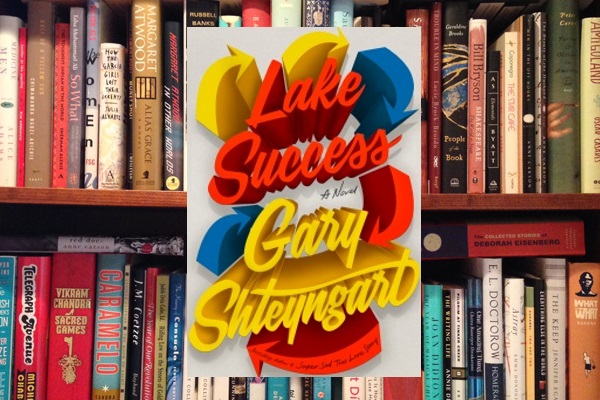JUDY WOODRUFF: Last week's elections highlighted the divide between urban and rural America. Author Gary Shteyngart spent a good deal of time in both camps and was surprised by what he learned. That's tonight's In My Humble Opinion.
GARY SHTEYNGART, Author, Lake Success: My novel Lake Success is the story of a hedge fund manager who flees his failing marriage and an impending SEC investigation on a cross-country Greyhound bus trip. To research the book, I did two things. I spent four months touring the country on the Hound, as we called it, and I spent four years hanging out with hedge fund managers in Manhattan. Along the way, I got to ask the question, who is happy in America? And, conversely, who is not? The answers surprised me and changed the tone of the book I was writing. Being a Leningrad-born sap, or Soviet Ashkenazi pessimist, let's start with the unhappy people, hedge fund managers. There was the competitive nature of their job, the sense that nothing was ever enough, and the fact that the money they earned represented not a means of sustenance, but a form of winning, of being right, of proving to their fellow competitors that they had the answers to the universe. Then there was the Greyhound.

The unhappiest people there seemed to be those who perceived they were about to suffer a fall in status, as well as financial well-being. Around Louisiana, a group of white supremacists boarded the bus and spoke loudly of crucifying Muslims and Jews. As we drove past Grambling State University, a historically African-American college, one of the white supremacists pointed to a group of summer students and said, Well, they have their colleges, and one day, we will have ours. Which part of Dartmouth don't you understand? I wanted to say to him. So, who were the happiest people? First-generation college students were a permanent fixture of my month on the bus. Often, they would cross state lines to see their folks or their girlfriends or boyfriends. They still talked about their prospects, the way we imagine young Americans always have, with ambition and resilience and humor. I discovered perhaps the happiest people of all, professors at the University of Texas at El Paso. They led lives of relative wealth and contentment, along with a feeling that they were a part of something bigger. Indeed, what can bring more fulfillment than the knowledge that you have changed someone's life, and not just by giving to a charity, but by helping to educate someone for whom higher education is not a birthright, but a shining goal? Community was the surest indication of happiness on my long journey. Those who worked with people, and not just basis points on a Bloomberg monitor, were optimistic. They had hope for the people they mentored and hope for our fractious country as a whole. Along the border with Mexico, at one of the southwest extremities of our country, I found the kind of people I wanted to become. The future, I believe, is theirs for the taking.











